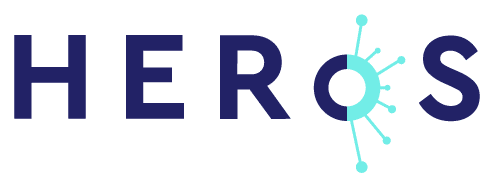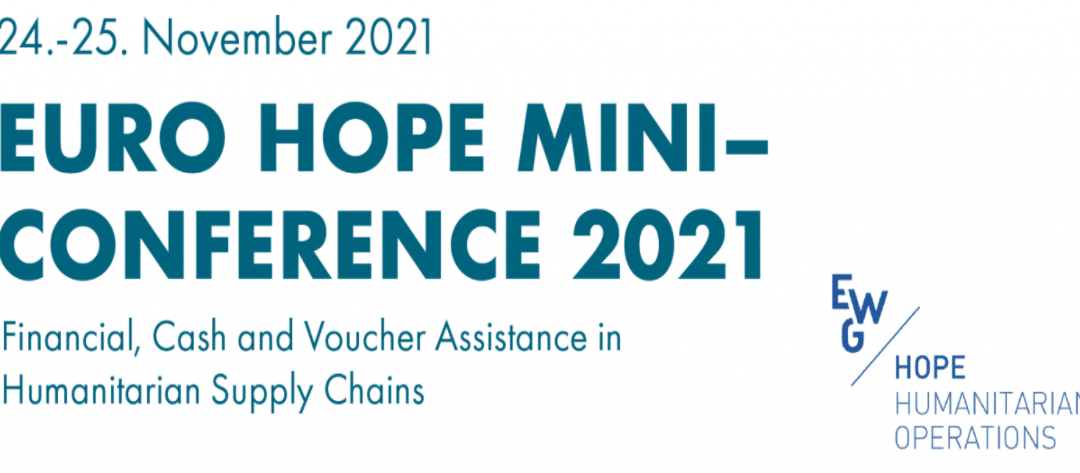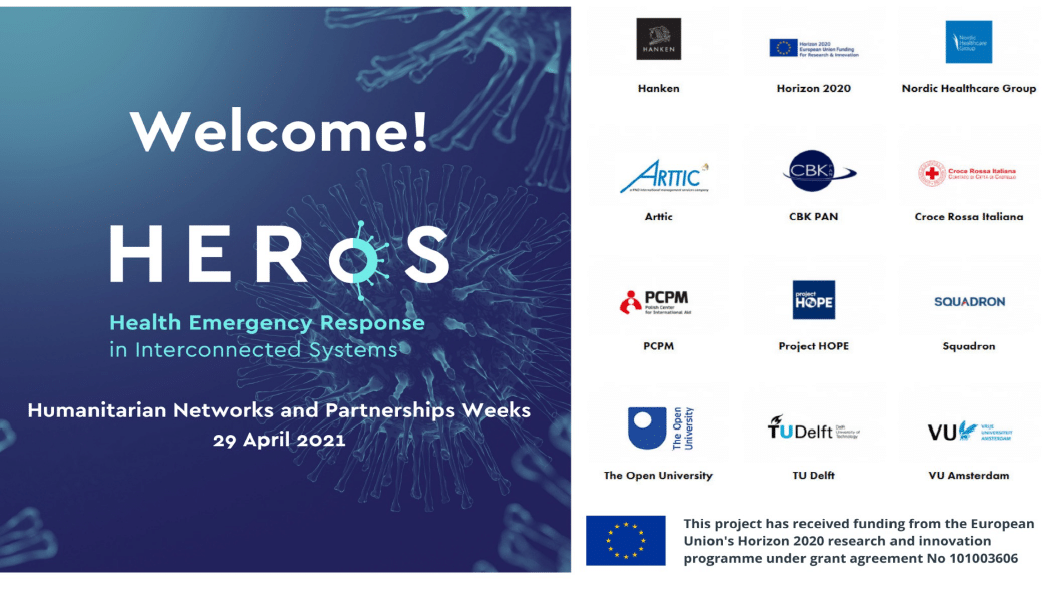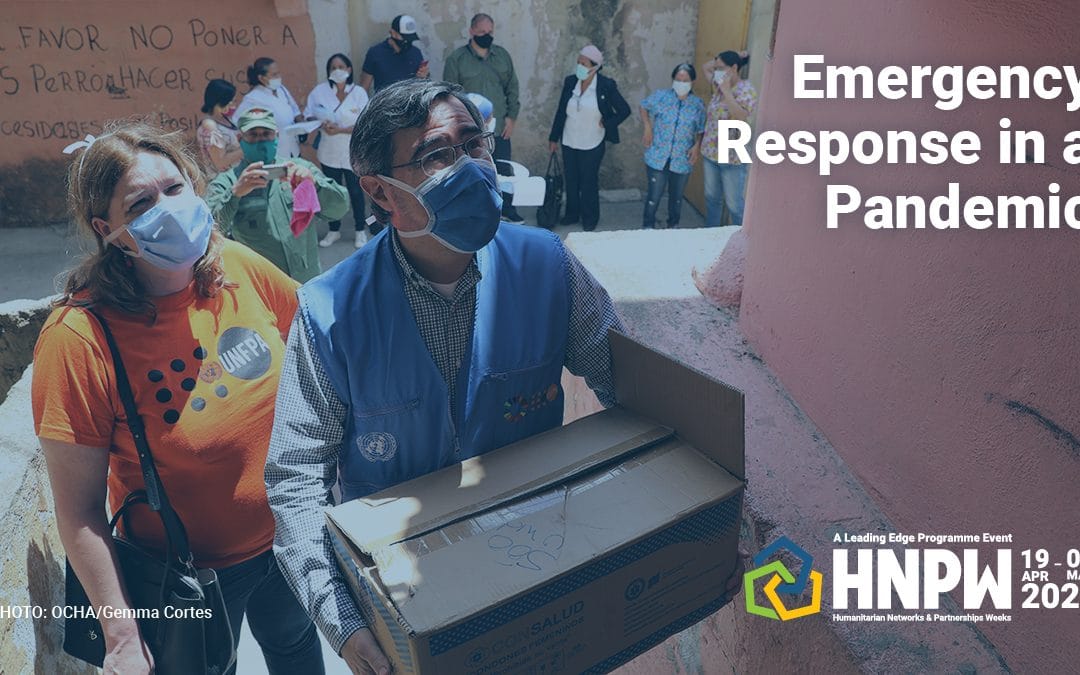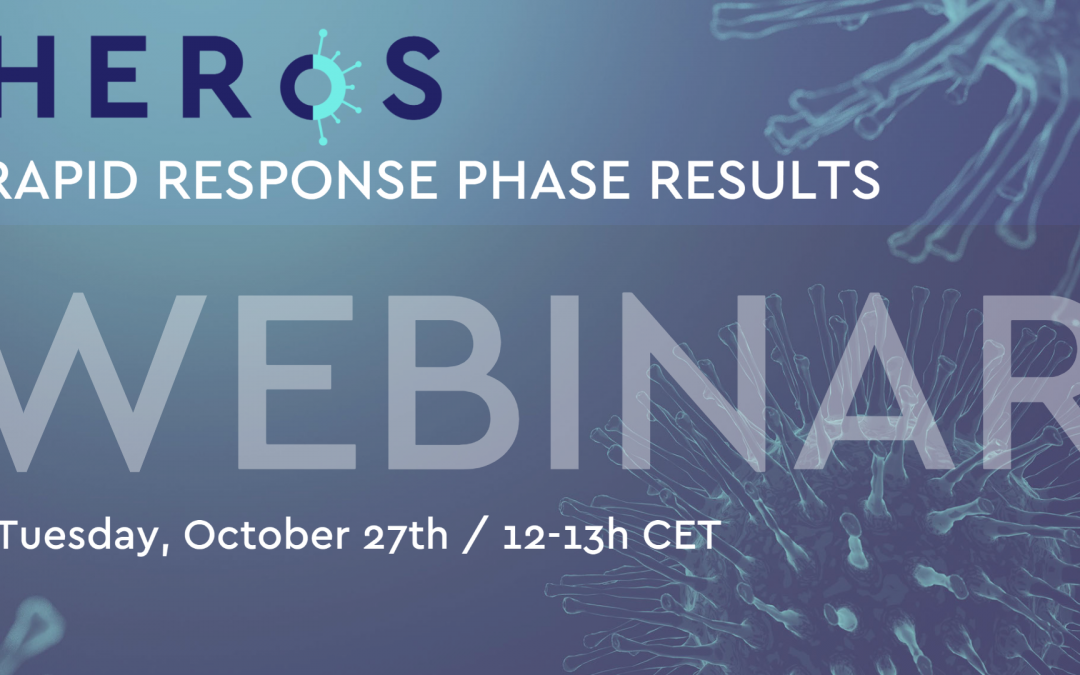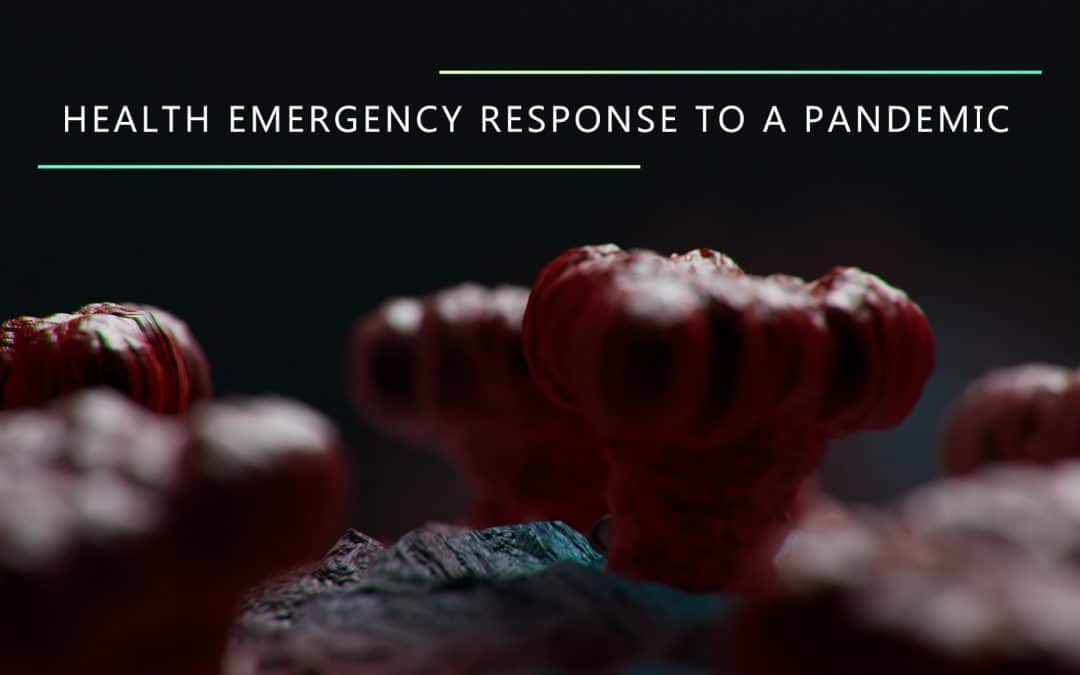The HERoS project – which aims to improve the effectiveness and efficiency of the response to the COVID-19 outbreak – completed its Rapid Response Phase in September 2020. To share the results of this initial period, the consortium organises a free webinar open to all on Tuesday, October 27th from 12-13h CET.REGISTER NOW
(the link to join the webinar will be sent by e-mail shortly before the event)
The webinar will present results from the following deliverables:
D1.1 Recommendations for governance and policies in the COVID-19 response
This report utilises social scientific methods, particularly (policy) document analysis, discourse analysis and interviews, to unravel the social and human aspects of decision-making practices, collective sensemaking and co-ordination. The guiding questions are: “How did various formal and informal stakeholders govern the COVID-19 crisis situation over time? How did they collectively make sense of the evolving situation and make joint decisions? How did the involved agencies collaborate and co-ordinate their activities in response to the COVID-19 crisis?”
D2.1 Local behavioural model and recommendations for local COVID-19 response
This deliverable makes a head start on agent-based modelling that provides insights into the dynamics of the spread and the impact of different policies in two cities. Based on this, we provide recommendations for cities and governmental bodies on robust policies that help to control the spread of the disease.
D2.2 Public health system analysis and recommendations
This study assesses how healthcare systems responded to the crises during the first wave of the COVID-19 pandemic in the spring of 2020. In the study we analyse how different health care system features, country characteristics, and COVID-19 non-pharmaceutical interventions affected the spread of the virus on healthcare systems in Europe in the spring of 2020 and how the health care systems responded.There are five different focus areas in this deliverable: 1) statistical model for the advance of COVID-19, 2) preparedness assessment, 3) analysis of testing, 4) analysis of hospital intensive care units, and 5) analysis of the behaviour of healthcare professionals.
D3.1 Gap analysis and recommendations for securing medical supplies for the COVID-19 response
By analysing primary data (interviews) and secondary data (reports) of the end-users of HERoS and of other members of medical supply chains, we have identified disruptions and their associated gaps caused by consumer behaviour, capacity limitations and legislation. In particular, gaps in the production, logistics and cargo transport, fulfilment and delivery of medical supplies orders to health professional and patients were identified. In addition, gaps for preventing fraud and competition between suppliers as well as gaps in vetting processes of new partners were noted. Gaps related to quality standards and certificates, as well as imports and exports regulations contributed to delays of delivering life-saving items.
D4.1 Assessment of the online spread of coronavirus misinformation
In this deliverable, we present the state of the art in measuring the impact of fact-checking, highlighting a gap in which our knowledge of misinformation spread patterns is disconnected from how we approach the diffusion of fact-checking information. We show how current approaches that use holistic or aggregate measures may not provide the level of granularity needed to budge persistent claims. We outline some of the important features of the current COVID-19 pandemic, such as the companion “infodemic”, values and culture, that make measuring impact even more difficult. We highlight the necessity for understanding the “co-spread” of both misinformation and fact-checking information, to be able to measure the impact of fact-checking on specific misinforming claims temporally and, potentially, at the geographic or platform level.

